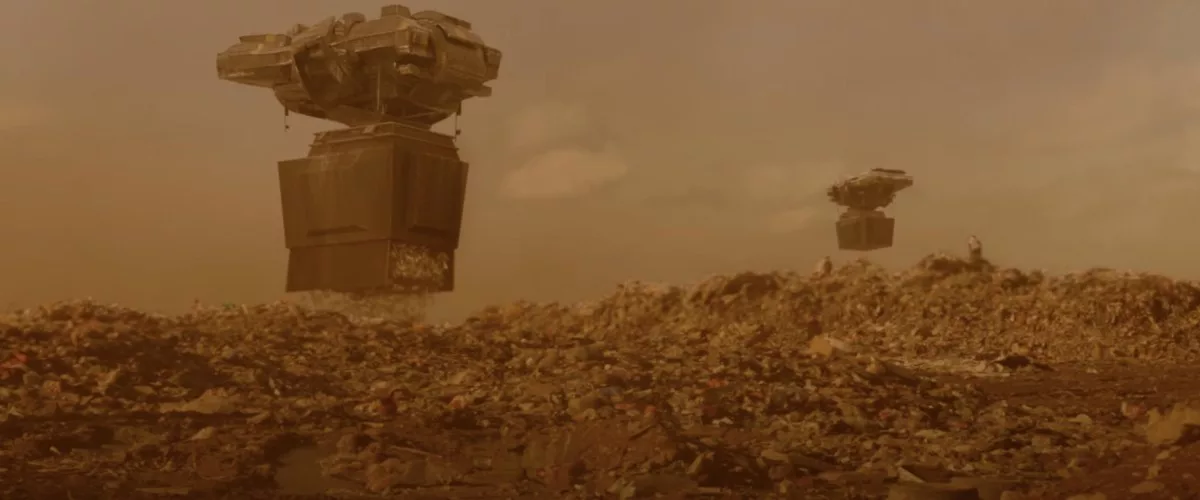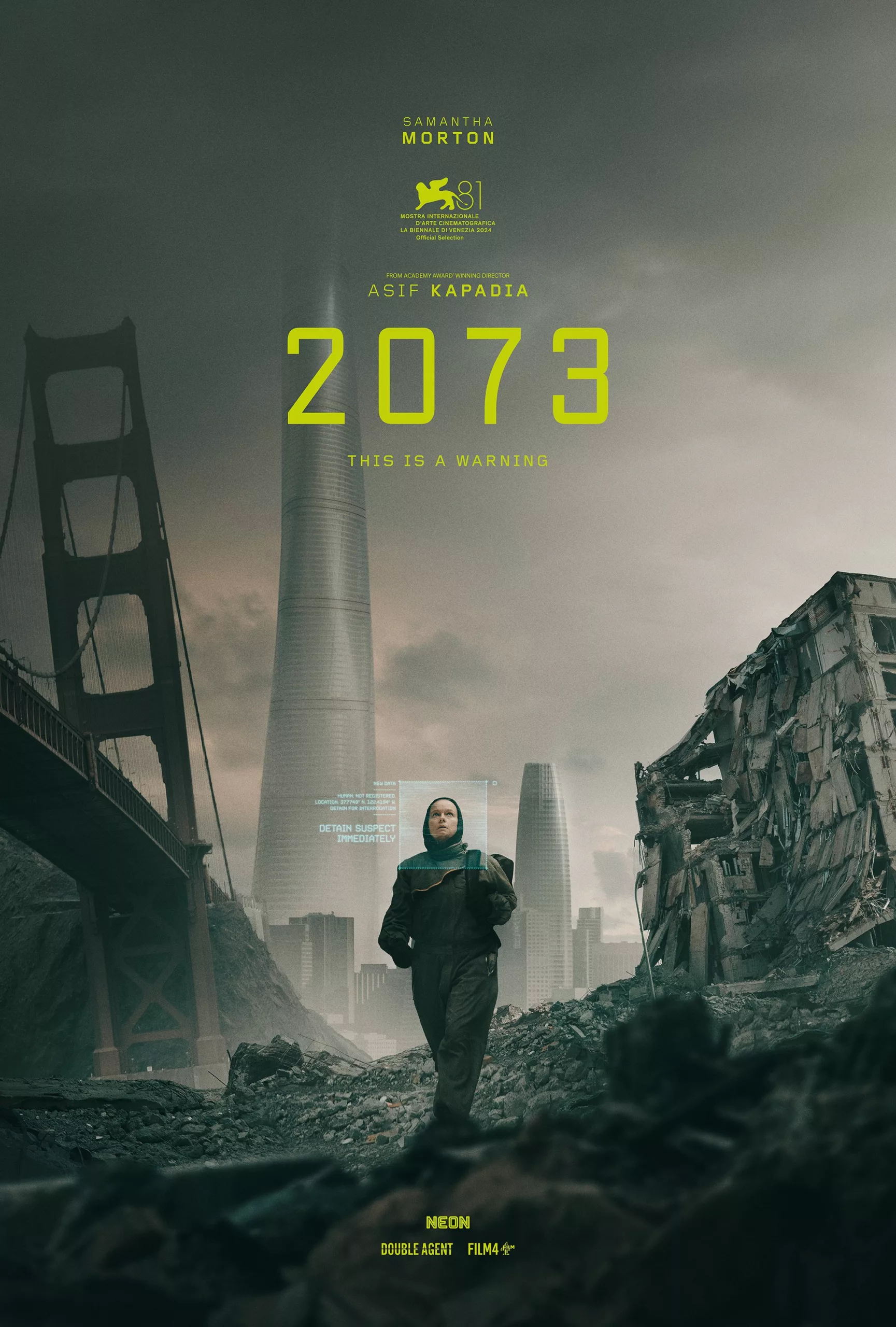“I hope someone finds this,” a disembodied voice says. The year is 2073, 37 years after something called “the event.” Trees are burning or burnt to charred crisps, there looks to be more junk than water in waves, arid wastelands as far as the eye can see, and New San Francisco, the capital of the Americas in Asif Kapadia docu-drama dystopia, is under an orange cloud. Under the government’s radar, our main character Ghost (Samantha Morton) waxes nostalgic for the stories her grandmother told her of the before times – before fascists, oligarchs, and tech scions seized control and left the world in ruins. While she and other survivors scurry through abandoned malls and garbage dumps for supplies, the ruling class live comfortably atop the ominous burning orange clouds, surrounded by clear skies, sunlight, and history’s priceless art. A news update declares “Chairwoman Trump celebrates 30th year in power” with Ivana Trump and Jared Kushner’s picture from the present day. Drones fill the air like mosquitoes on a summer evening in Florida. There is surveillance everywhere, and democracy an offense worthy of detention or worse. How did we get here?
Kapadia spends the majority of his new film “2073” answering that question of doomsday. What protections need to fall and players need to rise to power – or are they in power already? What political, technological, social, and economical events have to happen for the end of the world as we know it? The answer found by Kapadia and co-writer Tony Grisoni is a fractured one, as no single sector or thing will take total credit for Armageddon. It will be a series of events that will lead to the dreaded “the event,” the shot heard round the world that plunges society into darkness, like how Archduke Ferdinand’s assassination lit the powder keg that would become World War I.
In-between scant views of a desperate future visualized by cinematographer Bradford Young, Kapadia traces recent events from news footage and interviews as evidence we are on a timeline to destruction. Journalists like Maria Ressa, Rana Ayyub, and Carole Cadwalladr share their experiences with social media harassment, state-sanctioned surveillance, and detention over their findings and criticism of power in the Philippines, India, and Britain. The movie leapfrogs through time, especially through the 2000s and 2020s, to highlight how the rise of facism and surveillance will affect future generations. Using different case studies from around the world, Kapadia sees signs of our road to ruin already in the works, unabashedly showing the brutality and violence of what’s happened as a precursor to what will be, from Hindu extremists persecuting Muslims in India to China’s surveillance and oppression of Uyghurs, to social media learning everything it can about us to profit off of disinformation.
However, if this is meant to ring alarm bells, is an incurious audience going to seek “2073” out? We’re heading into a second Trump presidency, which makes for interesting timing for something like “2073,” but as with Adam McKay’s “Don’t Look Up,” will the only viewers who would watch this already be aware of the environmental, political, and economic climate? “2073” is a slick video essay within the trappings of a sci-fi movie, but there’s not enough narratively to grab audiences beyond the scaremongering. “Don’t Look Up” told a story while jackhammering its message, but “2073” plunges its audience right into police violence and terror with little thought in the sci-fi aspect of the narrative. It’s merely the aluminum foil to deliver the filmmaker’s thesis.
Now we know we’re in trouble, then what? Kapadia offers no solution, no answers delineating how to stop fascism, increased surveillance, or even how to push back against tech companies profiting off of our data. “It might not be too late for you,” Ghost tells us, but offers no insight on how to stop time from running out. At the end of one of her interviews, Maria Ressa jokingly asks, “isn’t this supposed to be a science fiction movie?” It barely qualifies as such. It’s more of a movie with a warning. Now that your consciousness has been raised, what are we to do about the rise of the machines and despots? I hope someone can answer that better than “2073.”




















